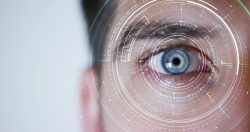 A team has demonstrated an association between circadian rhythms, health, diet, and lifespan. It was an unexpected discovery that the fly eye actually drives the process of aging.
A team has demonstrated an association between circadian rhythms, health, diet, and lifespan. It was an unexpected discovery that the fly eye actually drives the process of aging.
Earlier studies have shown in people that there is a link between poor health and eye disorders. The study contends that there is more evidence that dysfunction in the eye can prompt problems in a variety of other tissues. They are now demonstrating that not only will fasting enhance eyesight, but also that the eye will actually play a part that can influence lifespan.
This discovery, in the fruit fly, that the eye itself can directly influence lifespan, surprised the team.
They determined the reason for the link is in circadian clocks, the molecular process within each cell of all organisms. This evolution has adapted to stresses such as variations in temperature and light due to the sun’s rising and setting everyday. These oscillations that occur every 24 hours affect complex behaviors of animals such as prey-predator interactions and the wake/sleep cycles. They also fine tune the temporal modulation of molecular processes of protein translation and gene transcription.
The team showed that fruit flies that are on on restrictive diet had notable shifts in their circadian rhythms and also in extending their lifespan.
A fruit flies lifespan is short which makes it a great model that allowed the team to screen for a variety of things at one time. The study started with a broad survey to determine what genes will oscillate in a circadian fashion when the fruit flies on an unrestricted diet were compared to those that were fed just 10% of the protein of the same diet.
They immediately saw many genes that were diet responsive and in addition exhibited vascillations at different points in time or were rhythmic. They also found that the most activated rhythmic genes from the restrictive diet all seemed to be from the eye, primarily from photoreceptors which are the particular neurons in the retina that are light responsive.
A group of experiments were then done. They were designed to determine how function of the eye can affect how a restrictive diet can extend lifespan. One example was an experiment that showed that keeping the fruit flies in continual darkness seemed to extend their lifespan. This seemed strange to the team. They thought that light was essential for circadian rhythm.
They then utilized bioinformatics to ask the question if the genes in the eye, that are also responsive and rhythmic to dietary restriction, can influence lifespan? Their answer was yes!
We think of the eye as essential for vision. It’s not thought of as something that has to protect that whole organism.
Because the eyes are exposed to everything, the immune defenses are crucially active and can lead to inflammation. If this is present for long time periods, it can lead to or worsen many common diseases that can be chronic. Also, light can cause photoreceptor degeneration which can lead to inflammation.
Constantly looking at phone screens and computers and exposure to light pollution into the night are conditions that are very disturbing to circadian clocks. It can mess up eye protection that could lead to consequences besides just vision and can cause damage to the brain and the body.
There is a lot to understand about the eye’s role in the overall lifespan and health of an organism. This includes asking how the eye can influence lifespan and if the identical effect applies to other organisms?
The most important question that has been raised by this study is how it might apply to people and do photoreceptors in mammals influence lifespan? The team believes probably not as much as is does to the fruit fly, observing that most of the energy in a fruit fly is primarily to its eye. However, since photoreceptors are just specialized neurons, the stronger association is how circadian function plays in neurons in general. This is in particular with restrictions in diet, and how those can be accumulated to maintain nueronal function during the aging process.
Once researchers determine how these processes work, they can start to address the molecular clock to delay aging. It may be that people could maintain vision through activating the clocks that are within the eyes possibly through drugs, diet, and lifestyle changes.
To view the original scientific study click below:
Dietary restriction and the transcription factor clock delay eye aging to extend lifespan in Drosophila Melanogaster





